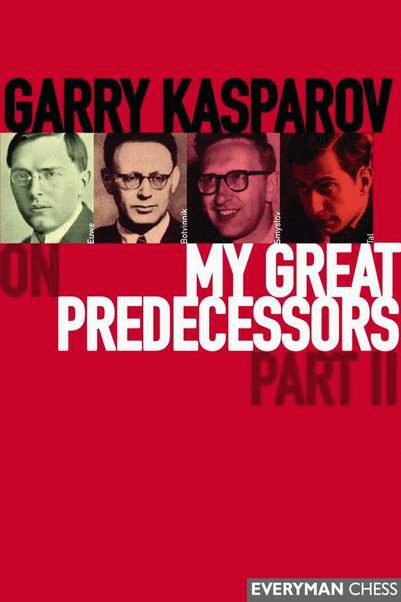Magnus Carlsen just succeeded today to defend his crown title in a very tough match against the challenger, the Italian-American Fabiano Caruana.
A conventional list of the world chess champions always starts with the Austrian Jew Wilhelm Steinitz. But my unconventional list starts with the American Paul Charles Morphy that could have beaten Steinitz but, like Fischer with Karpov, refused to defend his crown in a match. Below, the years when all of them became champions. As to date, I know of no list that discloses the Jewishness of six of the champions:
0. Paul Morphy (1858) United States
1. Wilhelm Steinitz ✡ (1886) Austria-Hungary
2. Emanuel Lasker ✡ (1894) Germany
3. José Raúl Capablanca (1921) Cuba
4. Alexander Alekhine (1927) Russia
5. Max Euwe (1935) Netherlands
6. Mikhail Botvinnik ✡ (1948) Soviet Union
7. Vasily Smyslov (1957) Soviet Union
8. Mikhail Tal ✡ (1960) Soviet Union
9. Tigran Petrosian (1963) Soviet Union
10. Boris Spassky (1969) Soviet Union
11. Robert Fischer ✡ (1972) United States
12. Anatoly Karpov (1975) Soviet Union
13. Garry Kasparov ✡ (1985) Soviet Union
14. Vladimir Kramnik (2000) Russia
15. Viswanathan Anand (2007) India
16. Magnus Carlsen (2013) Norway
Only Alexander Alekhine and Bobby Fischer spoke openly about the JQ: Alekhine in writings and Fischer in interviews. Alekhine was my idol when I was fifteen and Fischer was world champion.
In August 1939, Alekhine’s brother, Alexei, was murdered in Russia probably due to his open support of the Nazis. In 1941 Alekhine wrote six Jew-wise articles called ‘Jewish and Aryan Chess’. The articles were reproduced in Deutsch Schachzeitung.
 Left, a book of Alekhine’s games that I treasured when I was much younger!
Left, a book of Alekhine’s games that I treasured when I was much younger!
Alekhine’s articles tried to demonstrate that Jews played defensive, cowardly chess and the Aryan chessplayers played attacking chess that was aggressive and brave. (You just have to review the artistic games recorded in this book to see the stylistic difference compared to, say, Emanuel Lasker’s games.) Alekhine had hoped that after the death of Lasker, the latter would be the last Jewish chess champion of the world (Lasker’s sister died in a Nazi concentration camp).
Alekhine died in March 1946 in Portugal. A day after his death, a letter arrived inviting him to England for an Alekhine-Botvinnik match for the crown.
According to Wikipedia, a few years later Alekhine’s son said that ‘the hand of Moscow reached my father’. More recently, Canadian chess player Kevin Spraggett, who has lived in Portugal and who has thoroughly investigated Alekhine’s death, favours this possibility. Spraggett makes a case for the manipulation of the crime scene and the autopsy by the Portuguese secret police. He believes that Alekhine was murdered outside his hotel room, probably by the Soviets.
The Soviet Mikhail Botvinnik✡ became world chess champion a couple of years after the assassination of Alekhine. If the ethnostate is ever formed Alekhine’s tragic life deserves a movie.






